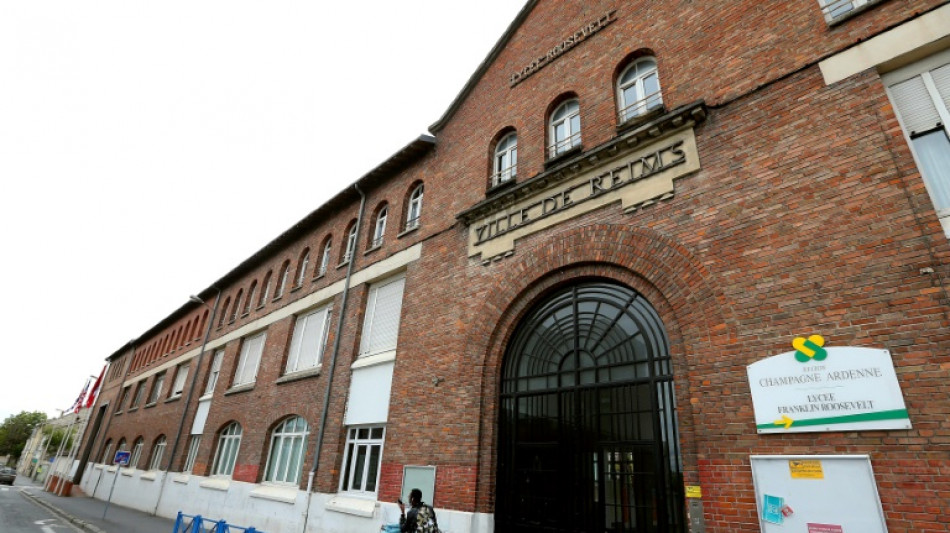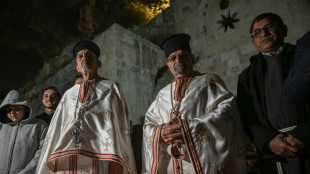

Nazi surrender site sets the scene for Wim Wenders short film
Award-winning German director Wim Wenders has revisited the French school where Nazi Germany signed its initial 1945 surrender for a short film released Monday, days before Europe marks 80 years since the end of World War II.
The red-bricked school in the eastern city of Reims was the "centre of the world" for one night, said veteran filmmaker Wenders, recalling when the German High Command first signed its unconditional surrender on May 7, 1945 at 2:41 am.
A second act of surrender was signed in Berlin the next day, on May 8, which the Allies declared the official date of victory over Nazi Germany.
But as European countries gear up to celebrate Victory in Europe Day, the war in Ukraine is a reminder "that peace cannot be taken for granted," said Wenders in a voiceover in the four-minute clip.
The short film, released by the German foreign ministry, combines archival footage with images of the Cannes Palme d’Or-winning director wandering through the school where the army chief of staff, General Alfred Jodl, signed Nazi Germany's total surrender.
The College Moderne et Technique - since renamed Lycee Roosevelt – served as the Allied High Command headquarters, making it the "most secret" place in Europe, according to one witness quoted in the footage.
"Nobody knows… that from the map room of this school, General Eisenhower is in charge of the fortunes of the Western Allies," said the director.
"Twelve years of terror, six years of war, the Holocaust, the worst crimes the world has ever known, ended here, in a school in Reims."
A set of keys on display in the school's museum are those that a US official returned to Reims' mayor, calling them "the keys to the freedom of the world".
But for Wenders, the peace brokered in that schoolhouse is under threat.
"I have lived 80 years in peace, a peace the night in this school brought us all," said Wenders, born three months after Germany’s capitulation.
"Today, there is war in Europe again," he added. "A war against Europe."
The Kremlin launched a full-scale attack on Ukraine in February 2022, hoping to take the country in days, but has since become embroiled in a bloody conflict that has killed tens of thousands.
On May 9, Russian President Vladimir Putin will address the annual Victory Day parade in Moscow, evoking the Soviet Union's defeat of Nazi Germany in World War II to rally support for his troops fighting in Ukraine.
The Russian leader has used WWII narratives to justify sending troops to Ukraine, vowing in 2022 to "de-Nazify" the country and since comparing the current conflict to the Soviet war effort.
"Eighty years after the liberation of our continent, Europeans are realising again that peace cannot be taken for granted," said Wenders.
"It is now up to us to take the keys to freedom into our own hands.
L.Aitken--RTC



